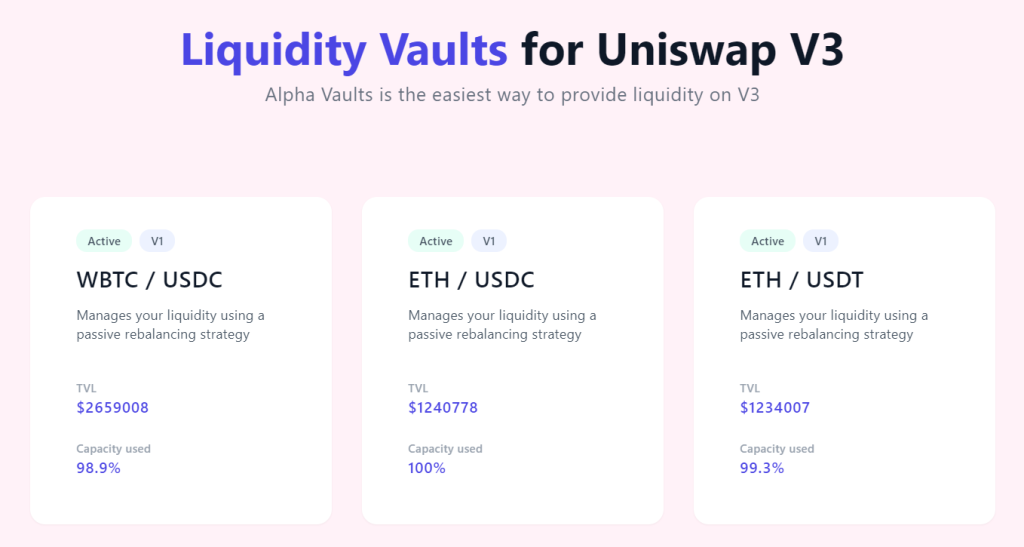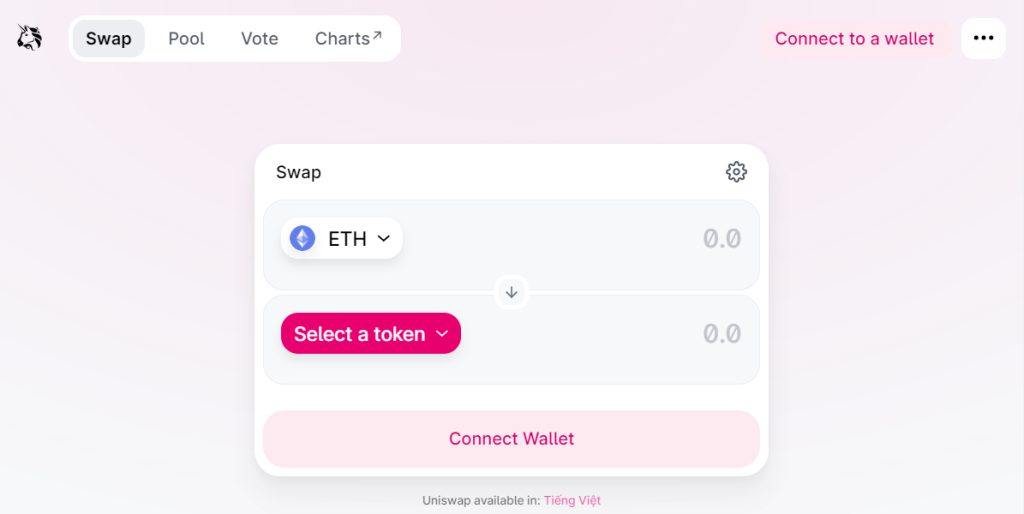
While Uniswap is highly popular, platforms like SushiSwap, Curve Finance, and 1inch Exchange offer advantages such as lower gas fees, advanced trading features, and better liquidity options. SushiSwap and Curve Finance are known for their lower transaction costs, while 1inch provides optimal trade execution by aggregating liquidity from multiple sources.
Lower Gas Fees Alternatives
SushiSwap
SushiSwap is a decentralized exchange (DEX) that offers lower gas fees compared to Uniswap, making it a viable alternative for traders looking to reduce transaction costs.
Gas Efficiency
- Optimized Transactions: SushiSwap has implemented various optimizations in its smart contracts to reduce gas consumption, particularly for liquidity provision and token swaps.
- Batch Processing: SushiSwap supports batch processing of transactions, which can lower the overall gas fees by bundling multiple actions into a single transaction.
Additional Features
- Yield Farming: SushiSwap offers attractive yield farming opportunities where users can earn rewards by staking their liquidity provider (LP) tokens.
- SushiBar: Users can stake their SUSHI tokens in the SushiBar to earn additional SUSHI, providing an incentive to hold and use the platform’s native token.
- MISO Launchpad: SushiSwap’s MISO launchpad facilitates the creation and launch of new tokens, enhancing its ecosystem and attracting more users.
Curve Finance
Curve Finance is another DEX known for its low gas fees, especially for stablecoin trading. It is designed to provide efficient and low-cost transactions.
Stablecoin Optimization
- Specialized Pools: Curve’s pools are optimized for stablecoins and other assets with similar values, leading to lower slippage and gas fees.
- Low Slippage: The platform’s unique design minimizes slippage, which, coupled with lower gas fees, makes it ideal for large stablecoin transactions.
Liquidity Provision
- Stablecoin Liquidity Pools: Curve offers highly efficient stablecoin liquidity pools that provide better returns due to lower impermanent loss and optimized gas usage.
- Curve DAO: The Curve DAO allows users to participate in governance and earn CRV tokens, further incentivizing liquidity provision and platform use.
Integration with Other DeFi Projects
- Yearn Finance: Curve Finance integrates seamlessly with Yearn Finance, allowing users to deposit Curve LP tokens into Yearn vaults to earn additional yield.
- Cross-Platform Benefits: By integrating with multiple DeFi projects, Curve enhances its utility and provides users with numerous opportunities to optimize their returns while benefiting from lower gas fees.

Higher Liquidity Options
Binance Smart Chain (BSC) DEXs
Binance Smart Chain (BSC) is known for its high liquidity and lower transaction fees compared to Ethereum-based DEXs. Here are some notable BSC DEXs offering higher liquidity:
PancakeSwap
- High Liquidity Pools: PancakeSwap is one of the largest and most popular DEXs on Binance Smart Chain, known for its deep liquidity pools. This ensures minimal slippage and better trade execution for large orders.
- Low Fees: PancakeSwap offers significantly lower transaction fees compared to Ethereum-based DEXs, making it cost-effective for traders.
- Yield Farming and Staking: Users can earn high returns by participating in yield farming and staking programs on PancakeSwap, enhancing its liquidity.
- Wide Range of Tokens: PancakeSwap supports a broad array of tokens, including those not available on Uniswap, providing more trading opportunities.
BakerySwap
- Efficient Swaps: BakerySwap offers efficient token swaps with high liquidity, ensuring minimal price impact even for large trades.
- Low Transaction Costs: Similar to PancakeSwap, BakerySwap benefits from BSC’s low transaction fees, making it attractive for frequent traders.
- NFT Marketplace: BakerySwap also features an NFT marketplace, providing additional use cases and attracting more liquidity to the platform.
PancakeSwap
PancakeSwap stands out as a high-liquidity DEX on Binance Smart Chain, offering numerous advantages:
Liquidity and Volume
- Deep Liquidity Pools: PancakeSwap maintains some of the deepest liquidity pools on BSC, ensuring efficient trade execution and minimal slippage for users.
- High Trading Volume: Consistently high trading volumes on PancakeSwap contribute to its liquidity, making it a reliable platform for large trades.
Incentives for Liquidity Providers
- Yield Farming: PancakeSwap offers lucrative yield farming opportunities, allowing liquidity providers to earn high returns on their staked assets.
- Syrup Pools: Users can stake CAKE tokens in Syrup Pools to earn rewards in various tokens, incentivizing long-term holding and liquidity provision.
Diverse Features
- Lottery and Predictions: PancakeSwap features a lottery system and prediction markets, attracting more users and liquidity to the platform.
- IFO (Initial Farm Offering): The IFO mechanism allows users to participate in new token launches, driving engagement and liquidity to PancakeSwap.
Advanced Trading Features
1inch Exchange
1inch Exchange is a decentralized exchange aggregator that provides advanced trading features and optimal pricing by routing trades across multiple liquidity sources.
Aggregated Liquidity
- Best Price Discovery: 1inch aggregates liquidity from various DEXs like Uniswap, SushiSwap, and Curve, ensuring that users get the best possible price for their trades.
- Low Slippage: By splitting orders across multiple exchanges, 1inch minimizes slippage, making it ideal for large trades.
Advanced Order Types
- Limit Orders: Unlike many DEXs, 1inch supports limit orders, allowing traders to set specific prices at which they want to buy or sell tokens.
- Conditional Orders: 1inch enables conditional orders, which execute trades only when certain market conditions are met.
Gas Optimization
- Chi Gastoken: 1inch uses Chi Gastoken to reduce gas fees on transactions. Users can mint and use Chi tokens to save on gas costs.
- Optimized Routing: The platform uses advanced algorithms to find the most gas-efficient routes for trades, reducing overall transaction costs.
DODO
DODO is a decentralized exchange that utilizes a proactive market maker (PMM) algorithm to provide better liquidity and trading features compared to traditional automated market makers (AMMs).
Proactive Market Maker (PMM) Algorithm
- Price Stability: The PMM algorithm offers more stable prices and reduces slippage by maintaining closer market prices to the reference market.
- Capital Efficiency: DODO’s PMM provides better capital efficiency compared to AMMs like Uniswap, meaning less capital is required to achieve the same liquidity depth.
Crowdpooling
- Fair Token Launches: DODO’s crowdpooling feature allows for fair and transparent token launches, providing equal opportunities for all participants and reducing the risk of front-running.
- Liquidity Protection: This feature ensures that new tokens have sufficient liquidity from the start, protecting both the token project and investors.
Customizable Liquidity Pools
- Flexible Parameters: DODO allows liquidity providers to create customizable pools with adjustable parameters, such as fee rates and asset ratios, catering to different trading strategies and risk appetites.
- Single-Sided Liquidity Provision: Liquidity providers can deposit a single asset into a pool, simplifying the process and reducing exposure to impermanent loss.
Integration with Other DeFi Platforms
- Cross-Platform Compatibility: DODO integrates with various DeFi platforms, enabling users to leverage their DODO liquidity positions across multiple protocols for additional yield opportunities.
- Liquidity Mining: Users can participate in liquidity mining programs to earn DODO tokens, incentivizing liquidity provision and platform engagement.

Better Yield Farming Opportunities
Yearn Finance
Yearn Finance is a leading DeFi platform that automates yield farming strategies to maximize returns for users. Here’s how it provides better yield farming opportunities:
Automated Yield Optimization
- Vaults: Yearn Finance’s Vaults automatically optimize yield farming strategies by moving funds between different DeFi protocols to find the best returns. This automation reduces the need for manual management and helps users achieve higher yields.
- Strategists: Yearn employs strategists who continuously develop and implement new yield farming strategies, ensuring that Vaults are always utilizing the most effective and profitable methods.
Cost Efficiency
- Gas Savings: By pooling funds from multiple users, Yearn Finance reduces individual gas fees, making yield farming more cost-efficient, especially for smaller investors.
- Batch Transactions: Yearn’s automation processes transactions in batches, further minimizing gas costs and improving overall efficiency.
Diverse Investment Options
- Multi-Asset Support: Yearn supports a variety of assets, including stablecoins, ETH, and other popular cryptocurrencies, providing users with multiple options to diversify their investments.
- Risk Management: Yearn offers different Vaults with varying risk levels, allowing users to choose strategies that align with their risk tolerance and investment goals.
Aave
Aave is a decentralized lending platform that offers attractive yield farming opportunities through its innovative features and flexible protocols.
Lending and Borrowing
- Interest Rates: Aave provides competitive interest rates for lending and borrowing assets, allowing users to earn attractive yields on their deposited funds.
- Stable and Variable Rates: Users can choose between stable and variable interest rates, optimizing their returns based on market conditions and personal preferences.
Staking and Incentives
- Staking Rewards: Aave offers staking options where users can stake AAVE tokens to earn additional rewards, further boosting their overall returns.
- Liquidity Mining: Aave’s liquidity mining program incentivizes users to provide liquidity by rewarding them with AAVE tokens, enhancing the potential yield from their investments.
Flash Loans
- Arbitrage Opportunities: Aave’s flash loans allow users to borrow funds without collateral for a short duration, enabling arbitrage opportunities and other advanced trading strategies that can generate high returns.
- No Collateral Required: Flash loans require no upfront collateral, making them accessible to a wider range of users and strategies.
Multi-Asset Collateral
- Diversification: Aave supports a wide range of assets for collateral, allowing users to diversify their holdings and reduce risk while participating in yield farming.
- Flexible Borrowing Options: Users can borrow against their collateral in multiple assets, optimizing their strategies and maximizing returns.

Enhanced Security and Audits
Balancer
Balancer is a decentralized exchange and automated market maker (AMM) that emphasizes security and has undergone extensive audits to ensure the safety of user funds. Here’s how Balancer enhances security:
Comprehensive Audits
- Multiple Audits: Balancer has been audited by several reputable firms, including Trail of Bits, ConsenSys Diligence, and OpenZeppelin. These audits review the platform’s smart contracts to identify and fix vulnerabilities.
- Transparency: Audit reports are publicly available, providing transparency and building trust with users. This openness allows the community to scrutinize the code and contribute to its security.
Smart Contract Security
- Immutable Contracts: Balancer uses immutable smart contracts that cannot be altered once deployed, reducing the risk of malicious changes.
- Time-Locks: Important governance actions and upgrades are secured with time-locks, giving the community time to review and react to proposed changes before they are implemented.
Insurance Fund
- Safety Mechanisms: Balancer has implemented a safety fund to cover potential losses due to smart contract vulnerabilities. This fund provides an additional layer of security and confidence for users.
Decentralized Governance
- Community Involvement: Balancer’s governance model involves the community in decision-making processes, ensuring that changes and upgrades are thoroughly vetted by a broad range of stakeholders.
Kyber Network
Kyber Network is a liquidity protocol that focuses on providing secure and efficient decentralized trading. It has implemented rigorous security measures and undergone thorough audits to safeguard user funds.
Security Audits
- Regular Audits: Kyber Network’s smart contracts have been audited by top security firms like ChainSecurity and Quantstamp. These audits help ensure that the platform’s code is secure and free from critical vulnerabilities.
- Continuous Improvement: Kyber Network continually updates its codebase and undergoes regular security reviews to address new threats and improve its security posture.
Secure Smart Contract Design
- Formal Verification: Kyber Network uses formal verification techniques to mathematically prove the correctness of its smart contracts, reducing the risk of bugs and exploits.
- Bug Bounty Program: Kyber Network runs a bug bounty program that incentivizes security researchers to identify and report vulnerabilities, further enhancing the platform’s security.
Robust Architecture
- Resilient Infrastructure: Kyber’s architecture is designed to be resilient against various attacks, including front-running and denial-of-service attacks. This ensures the platform remains secure and reliable for users.
- Liquidity Providers: Kyber Network’s design allows liquidity providers to operate securely, minimizing the risk of losses due to market fluctuations or technical issues.
Insurance and Compensation
- Insurance Fund: Kyber Network has established an insurance fund to compensate users in case of security breaches or smart contract failures. This fund enhances user trust and provides a safety net.

Multi-Chain Support
Polkadot Ecosystem DEXs
Polkadot is a multi-chain platform that enables interoperability between different blockchains, providing a foundation for decentralized exchanges (DEXs) that offer multi-chain support.
Polkadot’s Interoperability
- Cross-Chain Transfers: Polkadot facilitates cross-chain transfers of any type of data or asset, enabling DEXs to support a wide range of tokens and assets from different blockchains.
- Parachains: Polkadot’s parachains are individual blockchains that run in parallel to the main Polkadot relay chain. This architecture allows DEXs on Polkadot to benefit from shared security and scalability.
Notable Polkadot DEXs
- Polkaswap: A decentralized exchange built on the SORA network, Polkaswap leverages Polkadot’s interoperability to enable seamless token swaps across different blockchains.
- Features: Supports a wide range of assets, provides liquidity mining opportunities, and benefits from Polkadot’s security and scalability.
- HydraDX: A next-generation liquidity protocol that operates as a Polkadot parachain. HydraDX aims to create a unified liquidity pool that can dynamically adjust to market conditions.
- Features: Offers cross-chain liquidity aggregation, advanced trading features, and low transaction fees.
Benefits of Polkadot DEXs
- Scalability: Polkadot’s architecture enables DEXs to scale efficiently, handling higher transaction volumes without compromising performance.
- Security: Shared security among parachains ensures that DEXs on Polkadot are robust and resilient against attacks.
- Interoperability: Polkadot’s ability to connect different blockchains allows DEXs to support a diverse range of assets, enhancing liquidity and trading opportunities.
Solana Ecosystem DEXs
Solana is a high-performance blockchain known for its fast transaction speeds and low fees. DEXs built on Solana benefit from these advantages, providing efficient and cost-effective trading platforms.
Solana’s High Performance
- Fast Transactions: Solana’s blockchain can process thousands of transactions per second (TPS), ensuring quick and seamless trading experiences on DEXs.
- Low Fees: Transaction fees on Solana are significantly lower than those on Ethereum, making it more economical for traders and liquidity providers.
Notable Solana DEXs
- Serum: A decentralized exchange and liquidity infrastructure platform built on Solana, Serum offers high-speed trading and a wide range of assets.
- Features: Order book-based trading, cross-chain swaps, and integration with Solana’s high-performance ecosystem.
- Raydium: An automated market maker (AMM) and liquidity provider built on Solana, Raydium offers fast and efficient token swaps.
- Features: Supports liquidity mining, yield farming, and integration with Serum’s order book for deeper liquidity.
Benefits of Solana DEXs
- Speed: Solana’s high TPS ensures that trades on DEXs are executed quickly, enhancing the overall user experience.
- Cost-Effectiveness: Low transaction fees on Solana make trading and liquidity provision more affordable, attracting a broader range of users.
- Ecosystem Integration: Solana DEXs benefit from integration with the broader Solana ecosystem, including wallets, DeFi platforms, and other decentralized applications.

User-Friendly Interfaces
Matcha
Matcha is a decentralized exchange (DEX) aggregator designed to provide a seamless and user-friendly trading experience by sourcing liquidity from various DEXs to ensure optimal pricing and minimal slippage.
Intuitive Design
- Clean Interface: Matcha offers a clean and intuitive interface that makes it easy for users to navigate and execute trades. The platform focuses on simplicity, ensuring that even new users can quickly understand how to use it.
- Ease of Use: The straightforward design and clear instructions make Matcha accessible for both novice and experienced traders. Users can easily search for tokens, review pricing information, and execute trades with just a few clicks.
Optimal Trade Execution
- Smart Order Routing: Matcha’s smart order routing algorithm aggregates liquidity from multiple DEXs, such as Uniswap, SushiSwap, and Kyber, to provide the best possible prices. This ensures users get the most value for their trades.
- Low Slippage: By sourcing liquidity from various platforms, Matcha minimizes slippage, making it ideal for both small and large trades.
Additional Features
- Price Alerts: Matcha allows users to set price alerts, notifying them when their desired trade price is reached. This feature helps users take advantage of market movements without constantly monitoring the platform.
- Limit Orders: Unlike many DEXs, Matcha supports limit orders, enabling users to specify the exact price at which they want to buy or sell a token. This feature provides greater control over trading strategies.
Paraswap
Paraswap is a DEX aggregator that focuses on providing a user-friendly trading experience by optimizing trade execution across multiple DEXs and offering advanced trading features.
Simple and Efficient Interface
- User-Friendly Design: Paraswap’s interface is designed to be user-friendly, with a focus on efficiency and ease of use. The platform’s layout is intuitive, allowing users to quickly find and trade tokens.
- Streamlined Experience: The platform simplifies the trading process by integrating all necessary information and tools into a single interface. This reduces the need for users to navigate multiple platforms or tabs.
Trade Optimization
- Liquidity Aggregation: Paraswap aggregates liquidity from multiple sources, including Uniswap, Balancer, and Curve, to ensure optimal trade execution. This helps users get the best prices and minimizes slippage.
- Gas Optimization: Paraswap employs techniques to reduce gas fees, such as aggregating trades and using gas tokens. This makes trading more cost-effective, especially during periods of high network congestion.
Advanced Trading Tools
- Price Impact Protection: Paraswap offers price impact protection, which helps users avoid significant losses due to large trades affecting the market price. This feature is particularly useful for traders dealing with high volumes.
- Customizable Settings: Users can customize various settings, such as slippage tolerance and gas price, to tailor their trading experience to their specific needs and preferences.
Integration with DeFi Ecosystem
- Wallet Compatibility: Paraswap is compatible with a wide range of wallets, including MetaMask, Trust Wallet, and Ledger, providing users with flexibility in managing their assets.
- DeFi Integrations: Paraswap integrates with other DeFi platforms and protocols, allowing users to access additional features and services, such as lending, borrowing, and yield farming, directly from the Paraswap interface.